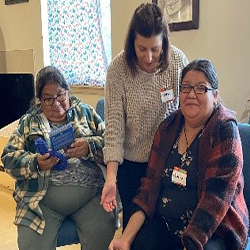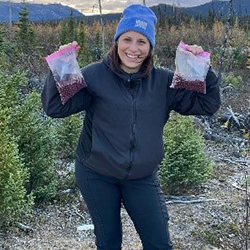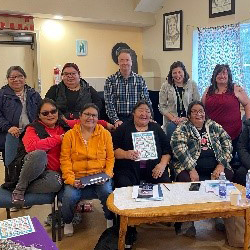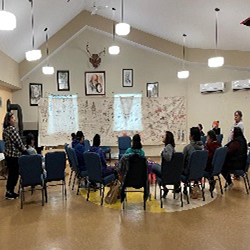Natuashish diabetes self-management journey
Members of Mushuau Innu First Nation community in Natuashish, off the coast of northern Labrador, have embarked on holistic journey to live well, and prevent and manage diabetes by offering an annual diabetes self-management journey.
The diabetes self-management journey is a 3-day, culturally relevant workshop that teaches community members about prevention and management. Participants are encouraged to bring along a partner, spouse, family member or friend as their support person. Diabetes is complex and education can go a long way in helping manage it effectively. The workshop focuses on topics such as nutrition, medications, physical activity, menu planning, traditional foods, foot care and mental wellness.
ISC-FNIHB Atlantic Regional Nutritionist, James McGrath and Regional Pharmacist Jennifer Ross Makhan, have been working with First Nations communities throughout the region for many years to deliver annual workshops such as this one.
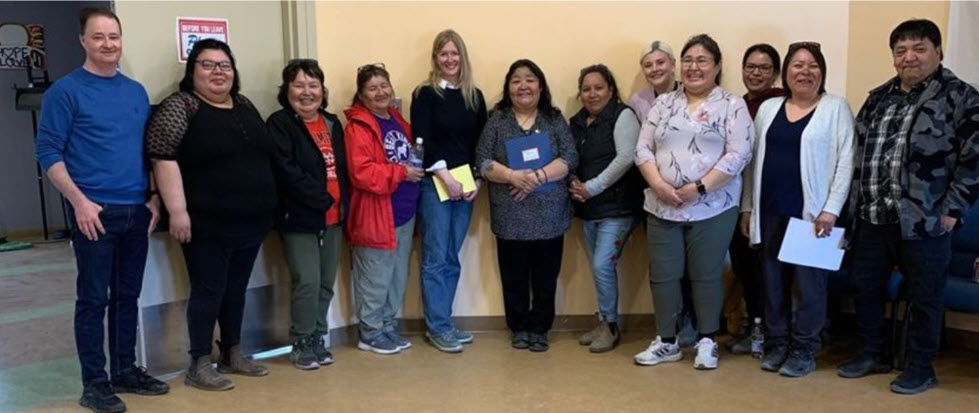
In May 2023, the community of Natuashish led its first diabetes self-management journey at the Natuashish Healing Lodge and ever since, participants have requested more workshops like it for their community. As a result, Natuashish held their second annual diabetes self-management journey in October 2024.
The second workshop began with an overview and discussion by Mary Jane Edmonds, of the Innu Timeline: the history of the Mushuau Innu First Nation from pre-contact to today. Edmonds, one of the community's Innu prevention services community workers, used the timeline to help participants understand the historical context in which diabetes developed in the community.
Before colonial contact, the Innu were a robust nomadic community that lived off the land. It was not until the 1950s that the Labrador Innu settled into permanent communities. Their way of life was disrupted; previously unknown diseases affected the communities, and access to alcohol viciously damaged individuals and families. The Innu diet changed from traditional, land-based eating to store-bought food. Health declined and the incidence of diabetes soared.
Throughout the workshop, presenters returned to the lessons learned from the timeline:
- Innu people are people that move
- they thrive on traditional foods, lifestyles, and ways of being
The workshop included many different types of activities like Nutrition Bingo, recipe taste tests, and a pedometer walking challenge. Participants learned how to make small changes in behaviour that are realistic and achievable, such as cutting down on sugary drinks and going for a walk – small changes in physical activity and meal planning that can make big changes to health.
"Overall, the diabetes journey was a success," said regional nutritionist James McGrath as he reflected on the workshop. "Participants appreciated the opportunity to learn from each other and gain a greater understanding about the importance on how both traditional Innu culture and western medicine can be combined to help manage and prevent type 2 diabetes."
Image gallery
Resistance training demonstration Katie Pasteen, Terry Lucas, Madeline Michel
Terri Lucas, Diabetes Nurse Educator, Labrador-Grenfell Zone, picking berries.
Front, sitting, from left to right: Elaine Tshakapesh, Agathe Rich, Marie Pokue, Katie Pasteen, Madeline Michel, Joey Michel Back, standing, from left to right: Emma Ashini, Cheryl Rich, James McGrath, Terri Lucas, Karla Lambert
Reviewing the Innu timeline
